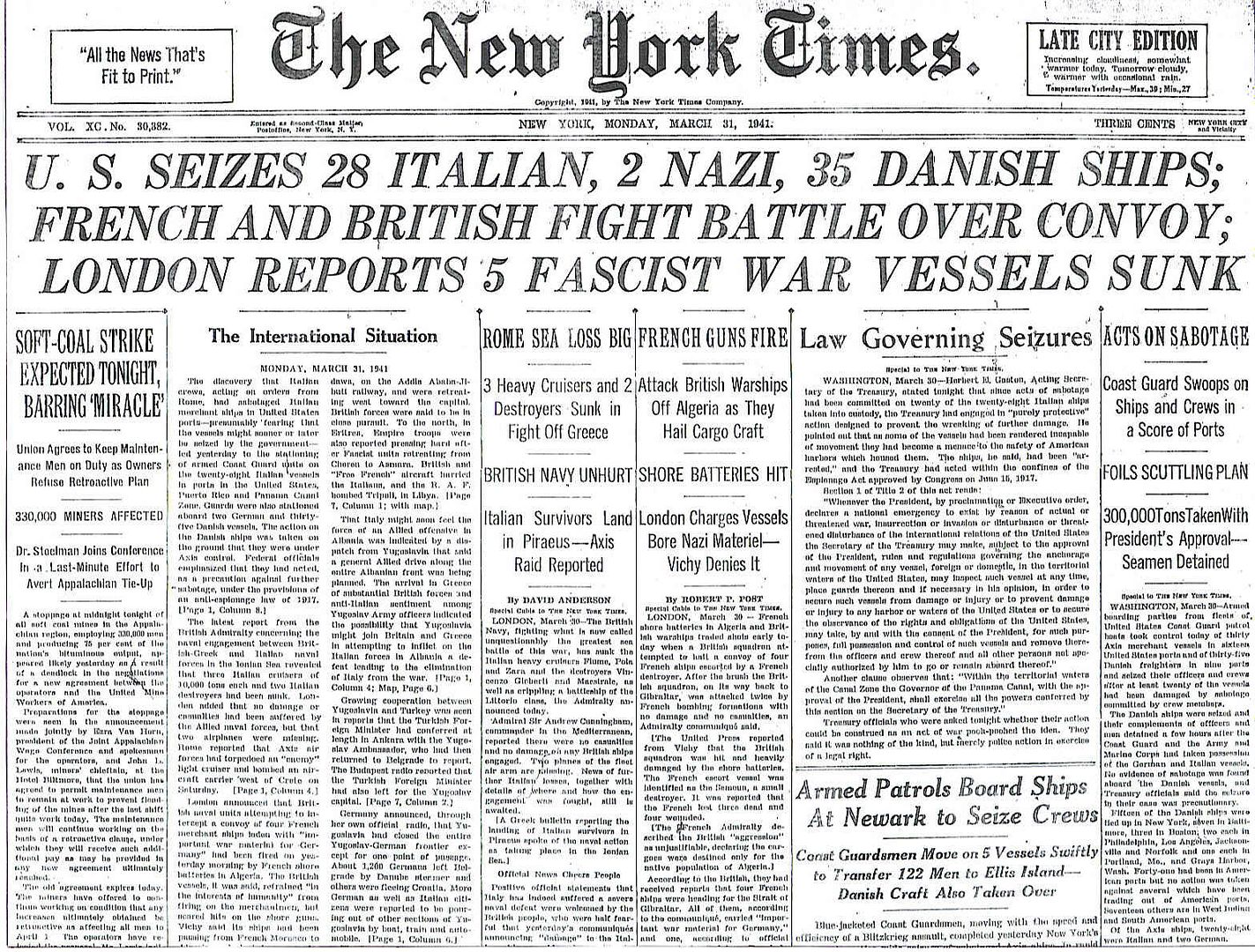
Posted on 03/31/2011 5:54:49 AM PDT by Homer_J_Simpson

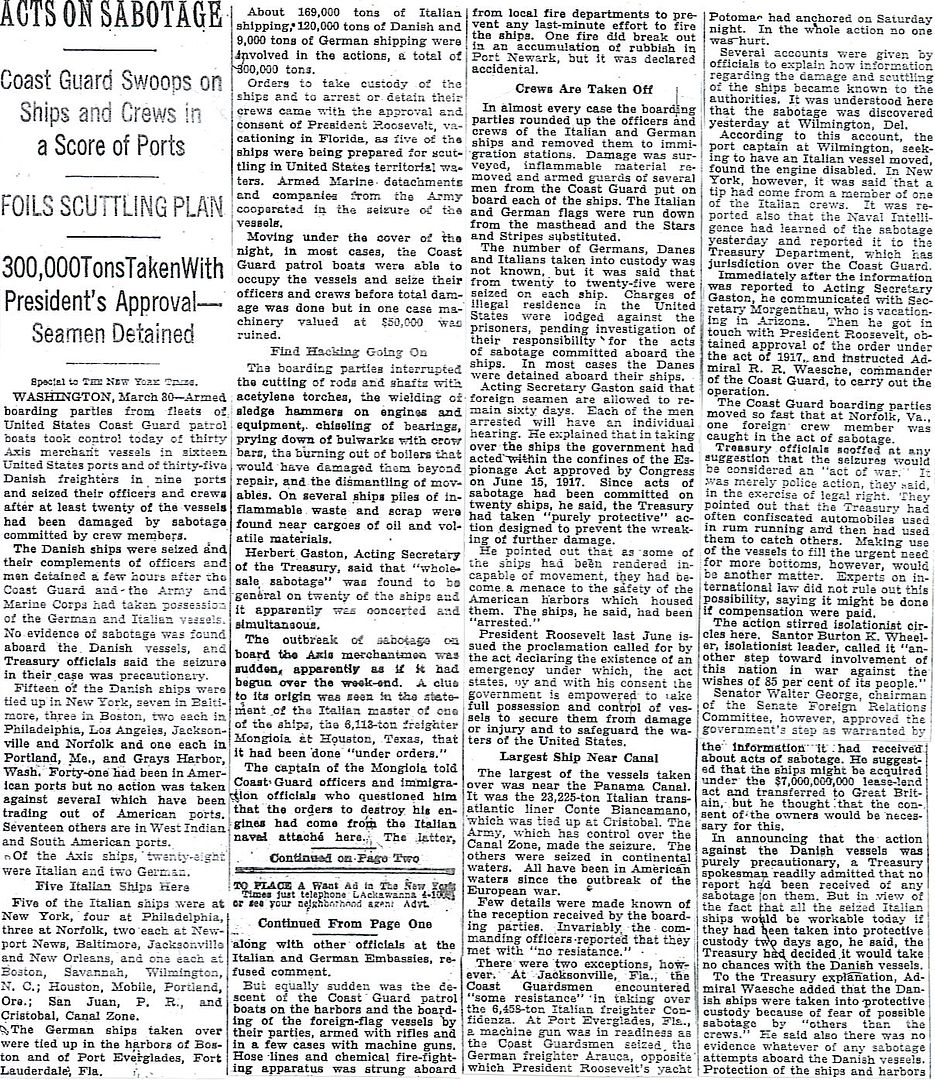
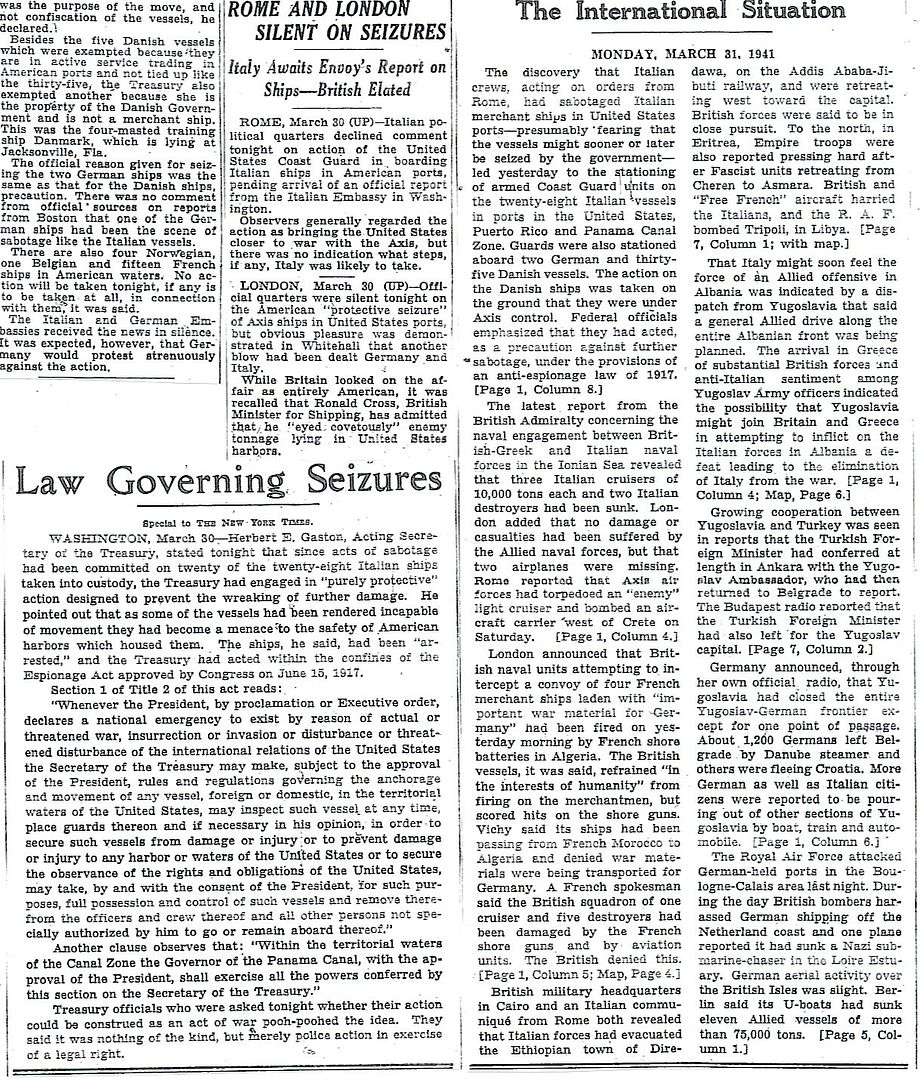
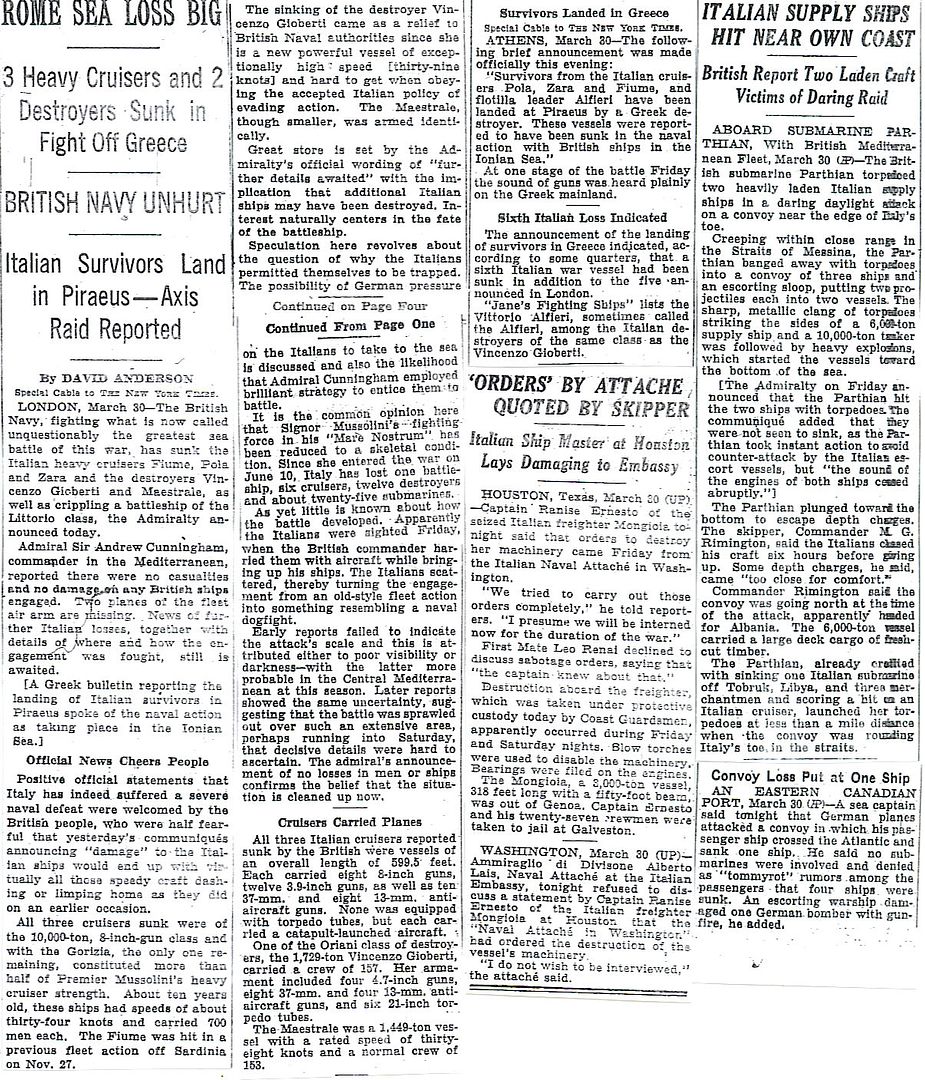
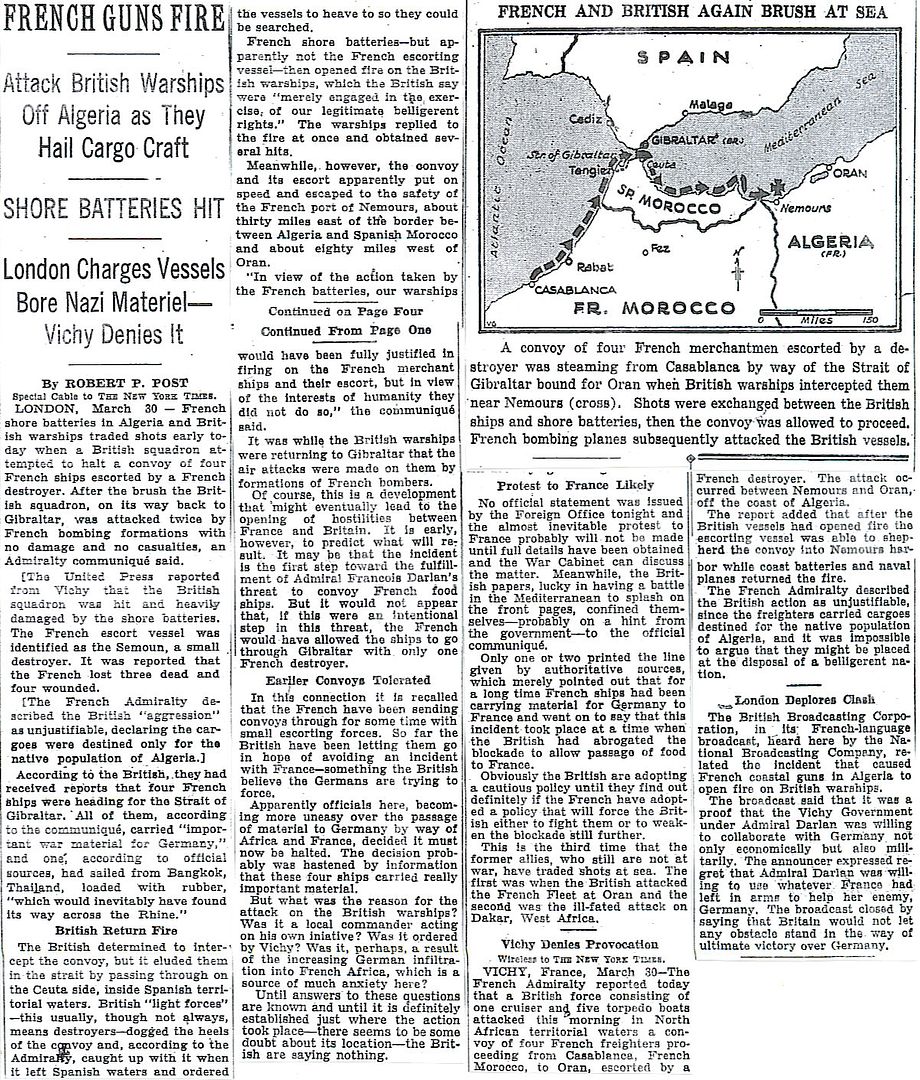
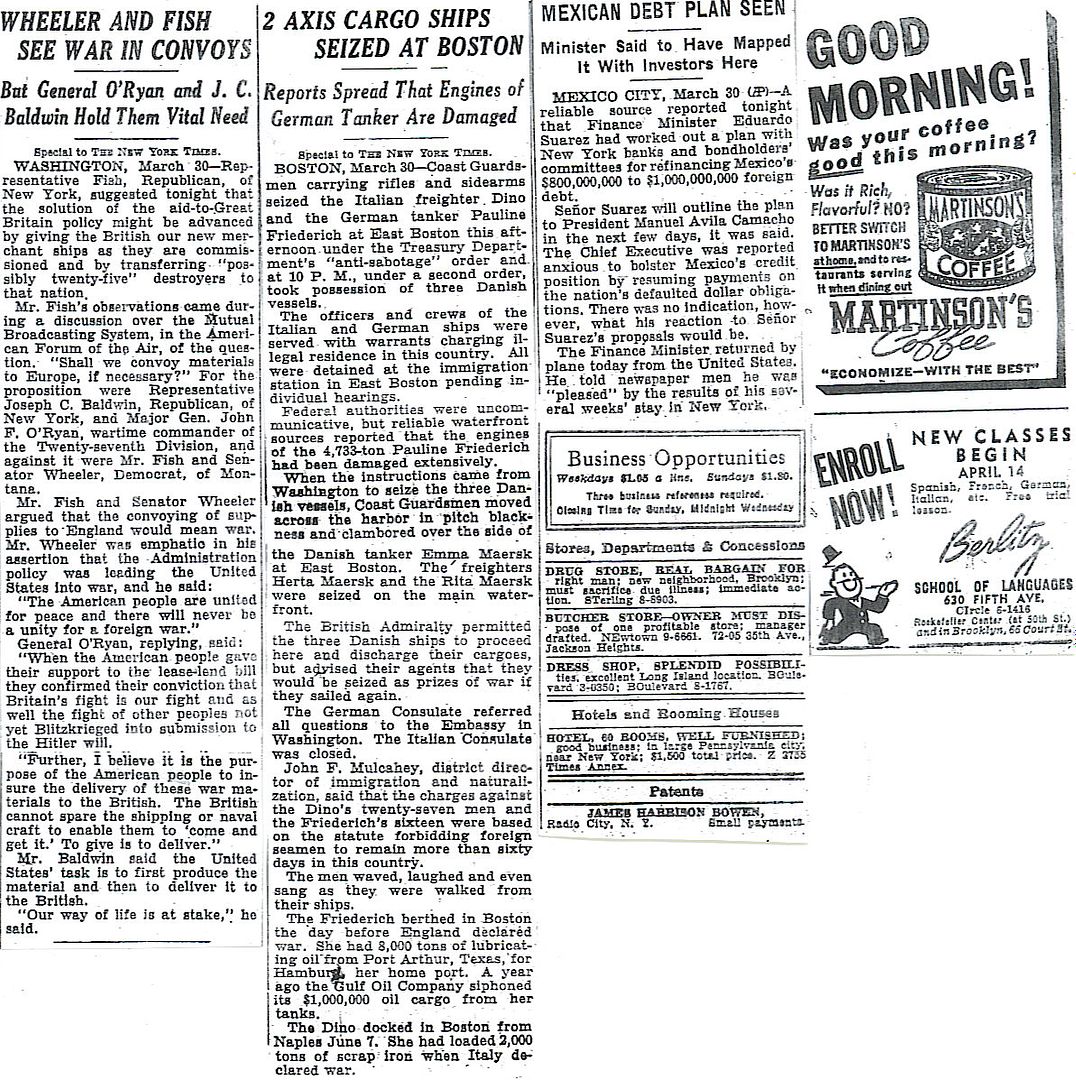
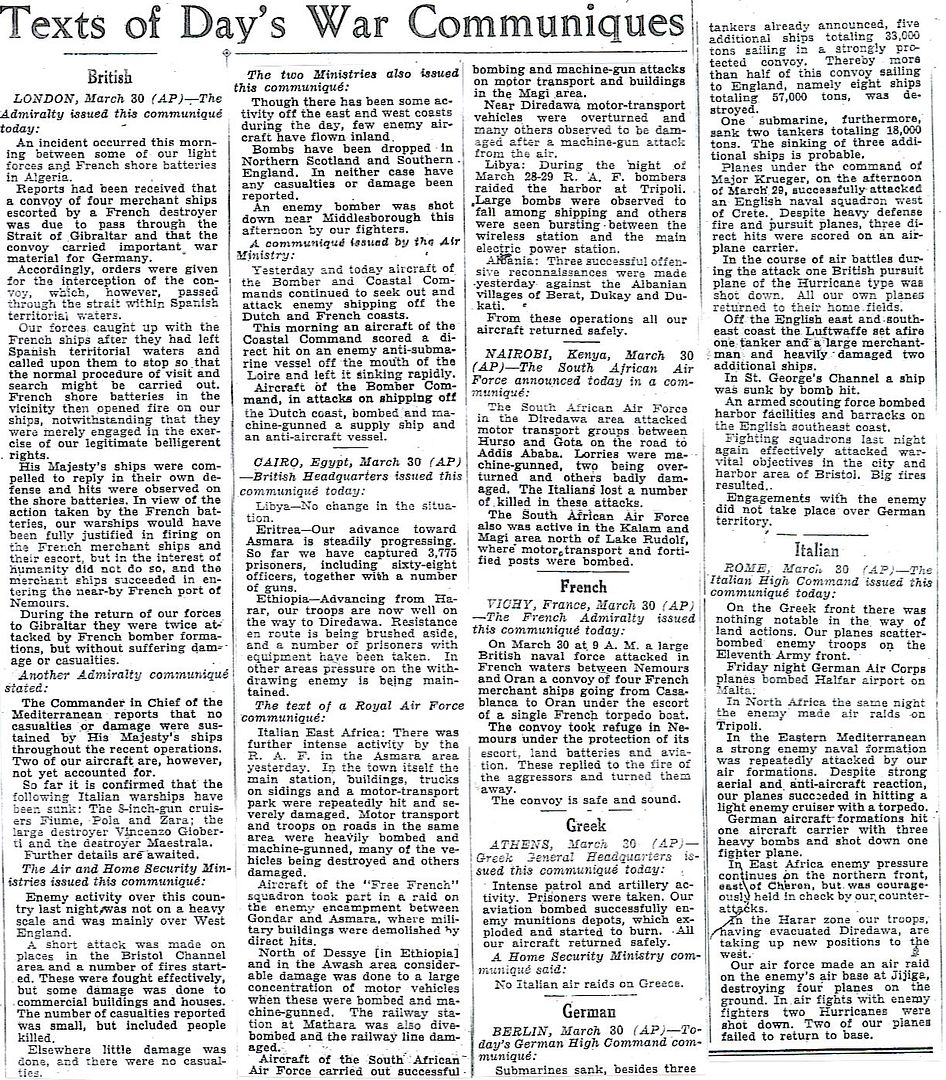
I see that you cannot follow the most rudimentary instructions. I didn’t expect much more from you honestly.
I see that you have no ability to make even the simplest case, without insults. So why would I have ever thought different?
Just present something new and we will discuss it. I’m sorry you are so thin skinned but you need to realize that I’m not here to make you feel good about yourself. That job goes to your wife or your shrink. I am neither.
Oh, dear me. Sorry pal, but this is your fight -- you picked it, and it will end when you walk away from it.
So, while we're waiting for you to do that, perhaps we should discuss an interesting topic such as: what's wrong with CougarGA7?
Specifically, why as an academic can't CougarGA7 be satisfied to present his data and arguments on Pearl Harbor, and let it go at that?
Why is it always necessary for him to throw in large doses of arrogant, condescending and insulting remarks?
Well, I propose the following answers:
CougarGA7's problem is, imho, he fantasizes that his academic status alone carries some weight on Free Republic, and is therefore determined to throw it around as much as possible.
Anyway, that's my theory.
And, whenever you're ready to walk away from this fight, feel free to do so, pal...
;-)
You’re the conspiracy nut. The burden of proof is on you and you have presented nothing. I will not waste my time repeating myself so present something new and we can move forward from there.
Sorry pal, but those are your words, not mine.
I don't believe in a "conspiracy" -- by definition of the word -- and everything I do believe is referenced to historical documents.
Furthermore, going back to our "what's wrong with CougarGA7?" theme, I don't think you've ever even thought through what it is, exactly, that you believe.
I'm near certain that if you honestly contemplated what you understand, in the end you'd find that we agree on most everything, except that, what you call "coincidence," "accident" and "mistakes", I say are the inevitable results of the President's leadership.
Official orders from the President were issued to allow the Japanese to strike the first blow, and our loyal military dutifully carried out those instructions.
I stand by my statement. Everything you have demonstrated here convinces me that you are a conspiracy nut.
Everything you've said here convinces me that CougarGA7 is not quite "right".
You can think that. I don’t put much value in the opinion of a conspiracy nut.
That's a false and malicious accusation, because you cannot correctly define the word "conspiracy," much less "nut," much less equate my views to those.
And I put no value in the opinions of people who repeatedly make false and malicious accusations.
My "accusation" against President Roosevelt is nothing more than historical fact: Washington brass knew enough to have better warned Hawaii's commanders, but failed, whether through "mistakes" or intention, to do so.
For that, among others I blame the commander in chief, and his officially stated desire to let Japan strike the first blow.
That's neither "conspiracy" nor "nuts," but for CougarGA7 to falsely claim it is makes you not "right" in the head, in my humble opinion.
I don’t believe it is false and its only malicious to you because you are so thin skinned. So I stand by my statement that I believe you are a conspiracy nut.
And now CougarGA7 leaves us, passing out of the realm of reasoned discussion and into the land of mindless insults.
No doubt you feel more at home there, even long for it, whenever you're away, however briefly...
So the insult is your sword-weapon of choice?
Very well, so be it. You like insults, and like to be insulted in return, obviously...
Well, I can accommodate that need.
CougarGA7's insult-sword is the term "conspiracy nut" -- it fits him, he wields it with a practiced professionalism.
So let me introduce you to my sword -- it is newly forged, still hot from the fire, and not yet tested in battle, but shows great promise, I think.
To keep a long introduction as short as possible, I'll just mention that many years ago I had lengthy debates with dedicated Holocaust deniers -- no, not on Free Republic, but a similar format.
These people were vastly more crude than anyone here can imagine, but as with CougarGA7, they began by sounding reasonable enough.
But even in the beginning, when they tried hardest to appear rational, they couldn't stop themselves from being arrogant, condescending and insulting.
It was something in their nature, I'm sure.
And as the discussions lengthened, the deniers' insults intensified and their reasonableness evaporated.
And in the end, as with CougarGA7, their argument boiled down to the following:
Of course, there was nothing they would accept as "proof," nor would they reject any claims, no matter how flimsy, which supported their own positions.
They were simply beyond the reach of reason.
So I think CougarGA7 has always been a latent denier of presidential responsibility for the disaster at Pearl Harbor.
The tip-offs are his arrogance, condescension and insults -- those tell us right away, his mind is not functioning properly.
So, what's a good, insulting name for a Pearl Harbor denier?
Well, I don't know Greek, but "holocaust" means sacrifice by fire, and has a definite historical meaning.
Ukrainians use the word "holodomor," meaning "killing by hunger" to refer to Stalin's 1930s era genocide there.
So I'm thinking Pearl Harbor was a sacrifice -- not by fire, but by water, so how about using the Greek word for water: holo-hudor?
That could even be short for "sacrifice by water, wind and fire" -- holo-hudor-amenos-kai-pur.
So now, your insult-sword is calling me a "conspiracy nut"?
Then I'll call you a holohudor denier -- "Cougar the denier" for short.
Insult for insult:
En garde!
;-)
Then present something new as I have originally asked you to do. Until then you are just proving my point.
;-)
There are huge volumes of data available suggesting how much Washington knew of the coming attack.
Through "today", end of April 1941, of course none of it could be specific.
Much larger volumes of data were destroyed after the attack and some data, even today, remains secret and kept from the public.
This fact alone should tell people like yourself, CougarGA7: don't be so all-fired certain of what you claim the President didn't know.
The best summaries of this data that I've seen are in Stinnett and Victor, and I will copy some of that for Homer's readers as we approach December 7.
That's a promise.
Stinnett especially has come under major fire from academia, of whom our own CougarGA7 is a pretty good representative -- indeed, better than some others.
But for anyone who is interested in seeing -- fair and balanced -- a major debate between Stinnett himself and one his biggest critics, I highly recommend this link:
The Truth About Pearl Harbor: A Debate
But a warning: this debate is not for beginners -- you won't be able to make heads or tails of it.
But for anyone who has studied the matter, I think this debate is very informative, even a good place to start further discussion.
I wont have time today to go through that link, but I will and I’ll get back to you. I have suggested to Homer that on the 7th we launch a supplemental thread that is solely on the debate on Pearl Harbor. This would allow others to chime in rather than missing the discussion because it’s buried in an old thread with an unrelated title.
Thanks for finally putting out something new.
Well, that’s an interesting debate between these two men. I wish both of them would have been more detailed as what supports their position.
Stennitt mentions the Crane Files, which I have referenced in the past as well (I believe at least once in our conversions even). These are not a typical source so you wont find much if anything of them online. They are housed at the National Archives in record group 38 along with everything else concerning the CNO. As to Stennitt’s claim that much of the information has been pulled back, I’d like to see something to corroborate that since the process of accessing these files are not as simple as just doing a google search and it is often difficult to tell how complete things are (its worse when you are dealing with records in a foreign language).
I do have to say that Budiansky, though I have not read his work, does share with me one of my primary concerns with Stinnett’s work. Stinnett has a tendency to take sources out of context and makes them at least imply to mean something more than it really does. One such example we have already gone over in this particular thread but there are other examples.
Another issue would be non sourcing. Budiansky refers to this as “obscure citation” but really I see more examples of non-citation. To use an example from the Crane Files, Stinnett quotes a letter from Lietwiler (often mentioned in the linked debate) to Lt. Lee W. Parke, Chief, Japanese Cryptography Section in Washington. In this letter he makes the claim that his cryptographers are reading enough traffic to keep two translators very busy. He does not cite this source at all in his book, yet even I know that this is from the Crane Files (Box 15).
Now I’m not going to give Budiansky, Kahn, or Drea a free pass on this. I need to actually go read their work as I did Stinnett’s before I evaluate what they have produced. I haven’t had time to do that since this morning. Like I’ve said before, I see a more systemic problem with the system in place at the time that contributed more than any one persons malfeasance. I’d bet I’d find flaws in their position as well.
Final thought. This stood out to me when I was reading this debate. There was what I feel an insignificant debate over who was in charge on the Philippine station in 1941. Budiansky refers to Lt. Rudolf Fabian as the commander of intel at the Philippine station. This is only half right. He was co-commander with Lietwiler. Now first of all, this is a misleading omission. I don’t care for that kind of lack of detail. However, Stinnett goes to great lengths to point this out while he emphasizing Lietwiler’s command of the section. This also bothers me since it is fact that they were co-commanders and that this means that from a military perspective the word of one is the word of both. In the debate, Stinnett states that Fabian was relieved of command in September of 1941, but in his own book he has him as an authority on reporting from the Philippines as late as December 2, 1941. There is no mention in his book of him being relieved and there is clear evidence that his capacity did not change in 1941 so I would like more detail on this point.
I'd call it a "teaser" and not much more.
The first thing that struck me about this debate is that it's structurally "fair and balanced," meaning equal time to each to present their cases & rebuttals.
That makes it the only actually "fair and balanced" debate I've yet found by just googling around.
And it's Stinnett's web site!
Stinnett is one of the Research Fellows at the Independent Institute.
Of course I know nothing, zero, about him or them, but surely to goodness they cannot be just another IHR -- that would be intolerable, and I'm not even going to suspect it at this point.
My point is this: compare how Stinnett's web site presents the debate -- fair and balanced -- to the way it's presented on, for example, the most popular site for this kind of data: Wikipedia.
Pearl Harbor advance-knowledge conspiracy theory
Here even the title tells the story -- it's not at all clear to me that the Truth equates necessarily to a "conspiracy."
And the article's point of view is more than obvious, in some cases their "refutation" amounting to nothing more than blatant denials.
So I begin by noting that "fair and balanced" comes from Stinnett, while blatant denials from the anti-conspiracy theorists.
CougarGA7: "As to Stennitt’s claim that much of the information has been pulled back, I’d like to see something to corroborate that..."
Throughout Stinnett's book are numerous mentions of data which was destroyed or is still withheld, or even mysteriously disappeared when he went looking for it!
At some point (yes, another promise), I will compile a list of all those mentions.
It would be interesting to learn how much of that data is still missing, or kept secret.
CougarGA7: "Stinnett has a tendency to take sources out of context and makes them at least imply to mean something more than it really does.
One such example we have already gone over in this particular thread but there are other examples."
Again, I don't accept that such criticism is necessarily valid.
I think you'd need to thoroughly hear-out Stinnett's point of view before issuing a summary indictment of his scholarship.
In short, I don't take it as necessarily given that just because some scholars disagree with him, that makes Stinnett a scoundrel.
I'd withhold such judgment and give him the benefit of at least some doubts.
CougarGA7: "Budiansky refers to this as “obscure citation” but really I see more examples of non-citation. To use an example from the Crane Files, Stinnett quotes a letter from Lietwiler..."
I acknowledge your complaint, and further that many disagree with Stinnett's interpretation of that particular, now famous, quote.
Is that an editing problem -- why would a good editor let something like that get past him or her?
Or is the quote so well known -- at least to scholars -- that it doesn't need to be sourced?
But there's something else going on there, which you never hear about from the anti-conspiracy people, and that's the fact that Stinnett addresses many criticisms of his interpretations, and explains at length why he disagrees.
Some of these explanations are in the book itself, with many more in notes at the end.
CougarGA7: "Like I’ve said before, I see a more systemic problem with the system in place at the time that contributed more than any one persons malfeasance."
It's not clear to me there was any malfeasance or conspiracy by anyone prior to December 7 -- what I see is a loyal desire to dutifully carry out the Commander in Chief's (FDR's) written orders to let Japan strike the first blow.
CougarGA7: "This stood out to me when I was reading this debate. There was what I feel an insignificant debate over who was in charge on the Philippine station in 1941."
I totally agree, and am baffled to figure out: what does that signify?
What exactly are we looking at in that particular, apparently meaningless, debate?
I don't "get" it.
The only thing I can figure is: all that energy and debate invested in this particular, meaningless, fine point must signify to us that every other point raised by Stinnett and not disputed by Budiansky, must be agreed to by Budiansky!
Else why would they spend any time on such trivia?
Final thought: I drive past those archives, where much of this data is now kept, on the way to visit my Mom, who will soon celebrate her 90th birthday -- would that I be as healthy and alert as she is at that age!
But the thought of stopping in there to request data that Stinnett said was not available to him is almost beyond my comprehension -- what an idea!
Just imagine making a list of documents, then hands tremoring, handing it to the archivist and saying: "can you produce these?"
Naw, surely others have done all this before, and there's no need for me to attempt reinventing any wheels...
;-)
I don’t think I would go so far to call it “his website”. The Independent Institute is a libertarian think tank that Stinnett is listed as a fellow of along with a couple hundred other people. His authored contribution to their body of work spans only the years of 2000-2003, starting with the year he published his book and going only a few years after that. Several works by myself are published on my former’s university’s e-library, almost as many as Stinnett has on the Independent Institute in fact, but I would not consider it “my website”. More accurately, this is the site that Stinnett associates himself with and I think it would speak less of the site, not more of Stinnett, if it only allowed one side of the debate be aired. Comparing it to Wikipedia is not really very valid since not just anyone can edit the content on this site where as with Wikipedia anybody can.
I found it interesting that you used the word “Truth” in reference to your side of the Pearl Harbor debate. Usually the capitalization of the word truth is used in a religious context. In fact I believe this is the first time I’ve seen it used that way on a non religious issue. I think it might explain why you doggedly hang onto Stinnett’s and Victor’s work as gospel, and adamantly refuse to look at information from other sources.
Now as far as fair and balanced in this debate, I would have to agree that they both take equal shots bashing each other. Stinnett fires the first volley by accusing one of Budainsky’s associates with violating “basic journalism rules” He then goes on to attack Budainsky himself. I think they take a pretty equal number of shots at each other and neither of these men take the high road. As to the validity of Stennett’s claims against Kahn and Budainsky, he does not provide any links to the examples he cites for me to look at it and since I’m not very concerned with Kahn and Budainsky’s position on this debate it doesn’t strike me as significant. I don’t plan on using them as a source of information, so I don’t really care what they have written on the subject.
As to Stinnett’s work, the only reason I look at it at all is because it is one of your sources. I find that he has a tendency to state information out of its proper context so that it means something else. The example that Stennett makes with allowing the Japanese make the first overt act is the first striking example of this in his book in his preface and we have gone over this before. When you omit the next statement the implicitly instructs the Hawaii station to defend themselves, it changes the implications of the message completely. His book has many examples in which he does this along with others where he makes claims with no citation at all when there should be. Academically, these are both big no-no’s and takes away from his body of work. As I’ve said before, I have gone through his entire book and took it very seriously, but found many fundamental flaws in his scholarly process. I will admit though that he did a better job than Victor did.
As to the archival data. You don’t have to go in the facility at College Park to get files from there. You can just order them online. If Stinnett would list the files that he thinks got withdrawn it would be interesting to see what it would take to request them. But he is very non-specific as to what exactly got withdrawn and only leaves us to take his work for it that this happened. I have a friend that works at the archives at College Park that would let me know if certain files were no longer available if I knew what to ask him. I definitely wouldn’t order them though unless I needed them. They are expensive.
In Wikipedia's defense: not only can "anyone" edit the content, but many more people read Wiki articles of this type than any other source.
So mistakes and misinterpretations can be soon pointed out, debated and hopefully corrected.
If you'll read the discussion section of this particular Pearl Harbor article, you'll see much debate there and notice it's been through many revisions over several years.
How good is the end result?
Well, in my view it's not "fair and balanced," but entirely skewed in favor of anti-conspiracy theorists.
Indeed, on occasion when you see an actual "conspiracy theory" posted there, that post itself is almost a mockery of good historical research.
So where is a truly "fair and balanced" debate, amongst equally matched and informed groups, to be found?
I haven't seen it.
CougarGA7: "I found it interesting that you used the word “Truth” in reference to your side of the Pearl Harbor debate.
Usually the capitalization of the word truth is used in a religious context.
In fact I believe this is the first time I’ve seen it used that way on a non religious issue.
I think it might explain why you doggedly hang onto Stinnett’s and Victor’s work as gospel, and adamantly refuse to look at information from other sources."
Sorry, I didn't intend to cause confusion by capitalizing "Truth."
The reason I do it (on rare occasion) is to be very clear regarding a particular mental disease, suffered by nearly every liberal academic -- which is to say, nearly every academic -- a disease which forces them to believe there is no such thing as "Truth," but instead everything is "relative" and "conditional" and "social constructs" which we can chose to believe or not depending on our ideological commitments, etc., etc., ad nauseam...
I don't agree. I think there is historical Truth, and yes, you can call it God's Truth if you want, but if the idea of God confuses your poor mind, then leave God out of it, and just call it The Truth.
And remember the words Glen Beck has often quoted: "The truth has no agenda."
God's Truth has God's historical agenda, an agenda often as difficult to discern as are the historical facts themselves.
But we humans still do our best...
My point is this: on rare occasion, when I capitalize "Truth" it's because,
Finally, I'm not "adamantly refusing" anything.
But my interest in this discussion is the very area where -- so far as I know -- most academics "adamantly refuse" to go: the role, the actions, and responsibilities for Pearl Harbor of President Roosevelt and his inner circle.
To my knowledge, people like Toland, Stinnett and Victor are the only ones who have seriously addressed those questions -- at least so far as the "general public" of "history buffs" like myself is concerned.
In this regard you've suggested Major Clausen's 1945 - '46 investigation and his 1991 book.
But even while recommending it, you have not claimed that Clausen looks critically at FDR's inner group.
So it cannot tell me what I'm interested in here.
CougarGA7: "The example that Stennett makes with allowing the Japanese make the first overt act is the first striking example of this in his book in his preface and we have gone over this before.
When you omit the next statement the implicitly instructs the Hawaii station to defend themselves, it changes the implications of the message completely."
I'd call your analysis here highly skewed.
In fact the logic as understood by commanders of the time, would be very simple:
The guidance they received from Washington clearly told them to err on the side on non-aggression, imho.
CougarGA7: "As I’ve said before, I have gone through his entire book and took it very seriously, but found many fundamental flaws in his scholarly process."
I disagree that you did take Stinnett very seriously, much less Victor, because each makes, literally, hundreds of statements in support of their theses -- only a few of which statements have to actually be true in order to make their whole case serious enough for major historical re-evaluations.
In other words, it's not enough just to cite a handful of examples where you disagree with a source interpretation.
To defeat their arguments, you have to go after every point, defeat what you can, acknowledge what you must, and then discover how much of their major thesis remains valid.
For example, you might go through every claim they make, and, literally, rank them, from "certainly true" to "probably true" to "unsupported opinion" to "certainly false."
Now, if we focus just on the "certainly true" and "probably true" claims, how much of their overall narrative still holds water?
I would suppose that some of it must, and therefore their entire arguments should be taken more seriously.
Of course, if it turns out I'm wrong -- and that in reality these fellows are nothing more than charlatans preying on a gullible public's desire to blame FDR for what was not his fault -- then so be it.
But I've never seen all the facts addressed, or this argument made with anything approaching academic seriousness.
CougarGA7: "I definitely wouldn’t order them though unless I needed them. They are expensive."
It's a job for real scholars with serious backgrounds in the subject, and something new to contribute.
And when they do, I'll buy their books, and put in good words for them in places like Free Republic!
;-)
I will state right off the bat that this comment is out of line. While I make an observation that your adherence and verbiage towards your debate reminds me of a religious conviction, you respond by questioning my faith in general. I will accept your contention that you were trying to relate to a liberal practice, but I will warn you that any other personal attacks on my faith will not be tolerated. This is your only free pass.
Moving forward, I again would encourage you to read Clausen's book. It will not answer all your questions. It does not exonerate FDR's inner circle, but it is well worth the read. If you are serious that you will go outside Victor and Stinnett, then I suggest you do this. On top of that I suggest you read a portion of the Pearl Harbor files. Specifically, I suggests volumes 12 through 20 with an emphasis on 14 through 16. I also suggest you go ahead and read Prange's book. None of these sources are perfect, but they will give you a better overall picture. Outside of that, I again encourage you to read Captain A.T. Mahan's work "The Influence of Sea Power Upon History". This book is not going to give you specific answers on Pearl Harbor of course, but it will give you insight into the presiding strategic influences of many of the American and Japanese Admirals. Carrier doctrine will shatter this strategy, but throughout the Second World War, there are the Mahanian strategists coming at odds with the new naval aviation proponents. This is on both sides. A key component to Mahanian strategy is to lure the enemy into your own home waters for a decisive battle. We will see several examples of this as we move forward interwoven with carrier strategy, but key to this at this point was it left many doubtful of the prospect of a Japanese force moving so far a field to attack the home fleet. Again, this does not explain everything, but it gives you a background to get a better mindset for those who where involved in the events themself.
Now I will address the "overt act" message for the last time. I cannot understand how you can say I am skewing this:
If hostilities cannot comma repeat cannot comma be avoided the United States desires that Japan commit the first overt act Period This policy should not comma repeat not comma be construed as restricting you to a course of action that might jeopardize your defense Period
That is what was sent and it is plain as day. Do not start a fight, but not at the expense of defending yourself. There is no real difference between this message and what my father told me when I was a kid, "Never start a fight, but always finish one". There is nothing skewed here. It is just a word for word message sent in its original context.
Finally, I have no expectations that you will accept my word on the errors on Stennett's and Victor's work. I believe that any criticisms are in your mind an affront on you personally though it is not the intention. I do believe that I have shown, for anyone who looks at my examples, that there are flaws in their work that directly undermine their primary thesis. I also know that I can continue to show examples to that effect and will continue to do so to those (not specifically you) who try to pass off erroneous details in their work.
I keep getting the feeling like you are prodding me to research and write a book on the subject. While I tend to write off your statements as an illusion of my own vanity, I will say that perhaps down the road I might entertain this idea. But certainly not now. I have a doctorate to write which I have narrowed down to three subjects all of which are not anything anyone has ever seen in a book store and I have been diligently studying the German and Russian language to make my favorite of the three happen.
So, allow me to put this challenge to you. If you, as a history buff, and semi-retired according to you profile, are willing to embark on a serious independent research project on the causation of Pearl Harbor I will support you in any way I can in your research. What I'm offering you is simple. I will use any access I have to documents, and any contacts I have to get documents to support your research. In return I ask only that you jettison any preconceived notions (and I will do the same) and that an original research project be commenced. If you take this seriously, I'd bet we could get you published at the very least in a journal. (Which would be a big deal frankly)
Disclaimer: Opinions posted on Free Republic are those of the individual posters and do not necessarily represent the opinion of Free Republic or its management. All materials posted herein are protected by copyright law and the exemption for fair use of copyrighted works.